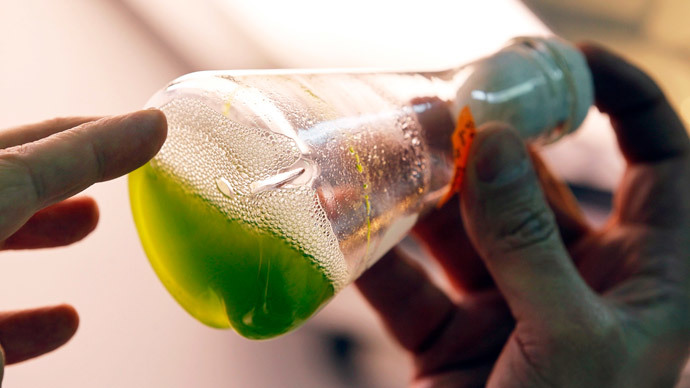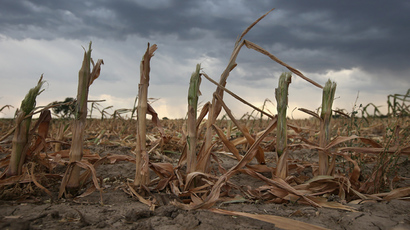Gasoline better for environment than corn biofuels, study says

Contrary to popular ‘green’ beliefs, a study funded by the US federal government argues that corn-based biofuels are actually worse for the environment than gasoline, as they emit more greenhouse gasses and deplete soil carbon.
The $500,000 peer-reviewed analysis by the University of
Nebraska-Lincoln, published in an issue of the journal Nature
Climate Change, claims that cellulosic biofuels like ethanol,
produced from residue, the byproduct of harvested corn (left-over
leaves, cobs etc.) lead to a 7-percent increase in emissions, as
well as 62 grams above the 60-percent reduction in greenhouse gas
emissions stipulated in the law on energy targets of 2007.
This is a setback for those lobbying for cleaner fuels, who wish
to combat climate change. The federal government has been trying
to push through mandates for increasing ethanol production to
promote the idea of clean alternatives to gasoline. They invested
over $1 billion in federal funds to support cellulosic biofuel
research. But ethanol-based fuel alternatives have so far been a
more expensive, cumbersome venture.
This should make farmers happy, as soil erosion has always been a
problem, as well as the issue of retaining residue for nourishing
and preserving soil quality.
According to experts in the field, the research is long overdue
and is the first attempt to quantify the effect of ethanol-based
biofuel on carbon depletion in soil. It looked at production in
12 Corn Belt states.
The key conclusion is that when left to be absorbed naturally by
the soil, the leaves, stalks and cobs are more beneficial for the
soil than when it is later burned as fuel and the residue gives
off carbon into the atmosphere. As a result, the study concludes
the process contributes to global warming.
"If less residue is removed, there is less decrease in soil
carbon, but it results in a smaller biofuel energy yield,"
Adam Liska, the professor in charge of the study said, adding
that the results of the study were in line with his expectations
and that he’s “amazed [the findings have] not come out more
solidly until now.”
As a preventive measure against depriving the soil of carbon it
gets from corn residue – and to reduce carbon emissions - the
research suggests planting more crops to give the earth the
carbon it needs; it also talks of using alternative feed stocks
and sources of residue, as well as harnessing more electricity
from carbon-fuel stations, as opposed to coal-operated ones.
The study received a swift response from government officials and
oil businesses, who say the research is flawed, as it uses
scenarios that are firstly too simplistic, because they don’t
account for variations in carbon depletion from soil in a given
field; secondly, they are seen as too extreme in overestimating
how much residue is removed.
According to Jan Koninckx, who is the global business director
for bio refineries at DuPont, a chemical company, “no
responsible farmer or business would ever employ [the study’s
suggestions], because it would ruin both the land and the
long-term supply of feedstock. It makes no agronomic or business
sense.”
But Liska believes that this is, in fact, the first study that
got the carbon depletion math as close to the truth as possible.
And, as professor David Tilman of the University of Minnesota
said in support of the study: “It will be very hard to make a
biofuel that has a better greenhouse gas impact than gasoline
using corn residue,” as cited by The Associated Press.














